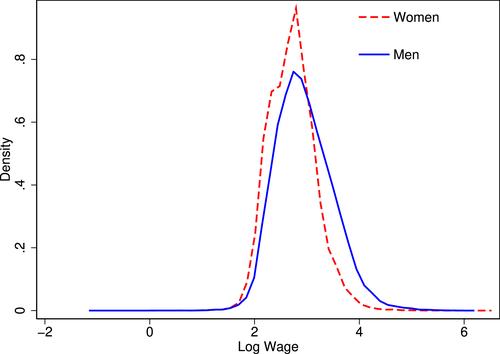非基数薪酬和性别薪酬差距
IF 0.7
Q4 INDUSTRIAL RELATIONS & LABOR
引用次数: 0
摘要
本文研究非基本薪酬是否会导致性别薪酬差距(GPG)。利用德国的行政数据,我们在工资分解中发现,在无条件工资分配的平均值和不同分位数上,女性较低的奖金支付解释了大约10%的差距,而女性轮班保费和加班费的较低流行率并不重要。在管理人员中,奖金对平均差距的贡献增加了一倍以上,并且随着工资分配的上升而稳步上升。我们的研究结果表明,奖金的性别差异是GPG的一个重要因素,尤其是在高层职位上。本文章由计算机程序翻译,如有差异,请以英文原文为准。

Non-base compensation and the gender pay gap
This paper investigates whether non-base compensation contributes to the gender pay gap (GPG). Using administrative data from Germany, we find in wage decompositions that lower bonus payments to women explain about 10 per cent of the gap at the mean and at different quantiles of the unconditional wage distribution whereas the lower prevalence of shift premia and overtime pay among women is unimportant. Among managers, the contribution of bonuses to the mean gap more than doubles and is steadily rising as one moves up the wage distribution. Our findings suggest that gender differences in bonuses are an important contributor to the GPG, particularly in top jobs.
求助全文
通过发布文献求助,成功后即可免费获取论文全文。
去求助
来源期刊

Labour-England
INDUSTRIAL RELATIONS & LABOR-
CiteScore
1.30
自引率
16.70%
发文量
25
期刊介绍:
LABOUR provides a forum for analysis and debate on issues concerning labour economics and industrial relations. The Journal publishes high quality contributions which combine economic theory and statistical methodology in order to analyse behaviour, institutions and policies relevant to the labour market.
 求助内容:
求助内容: 应助结果提醒方式:
应助结果提醒方式:


